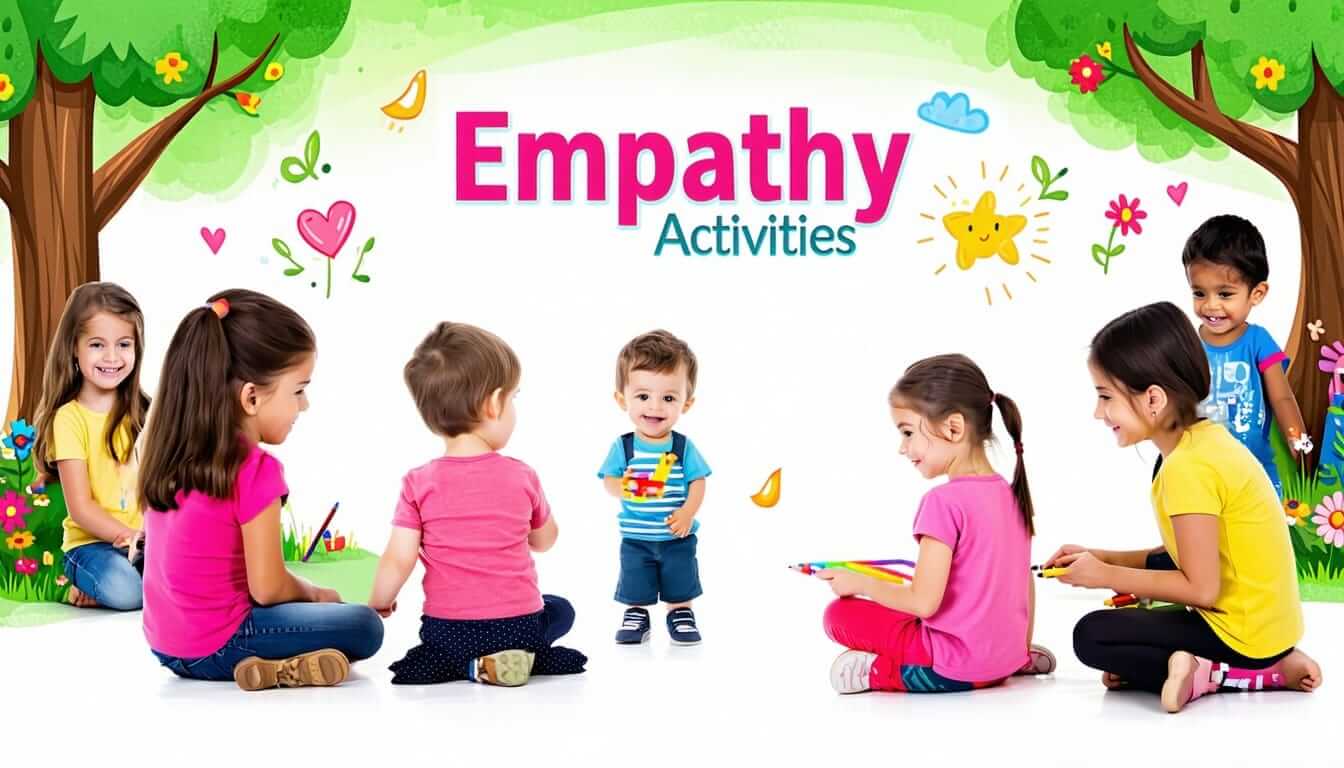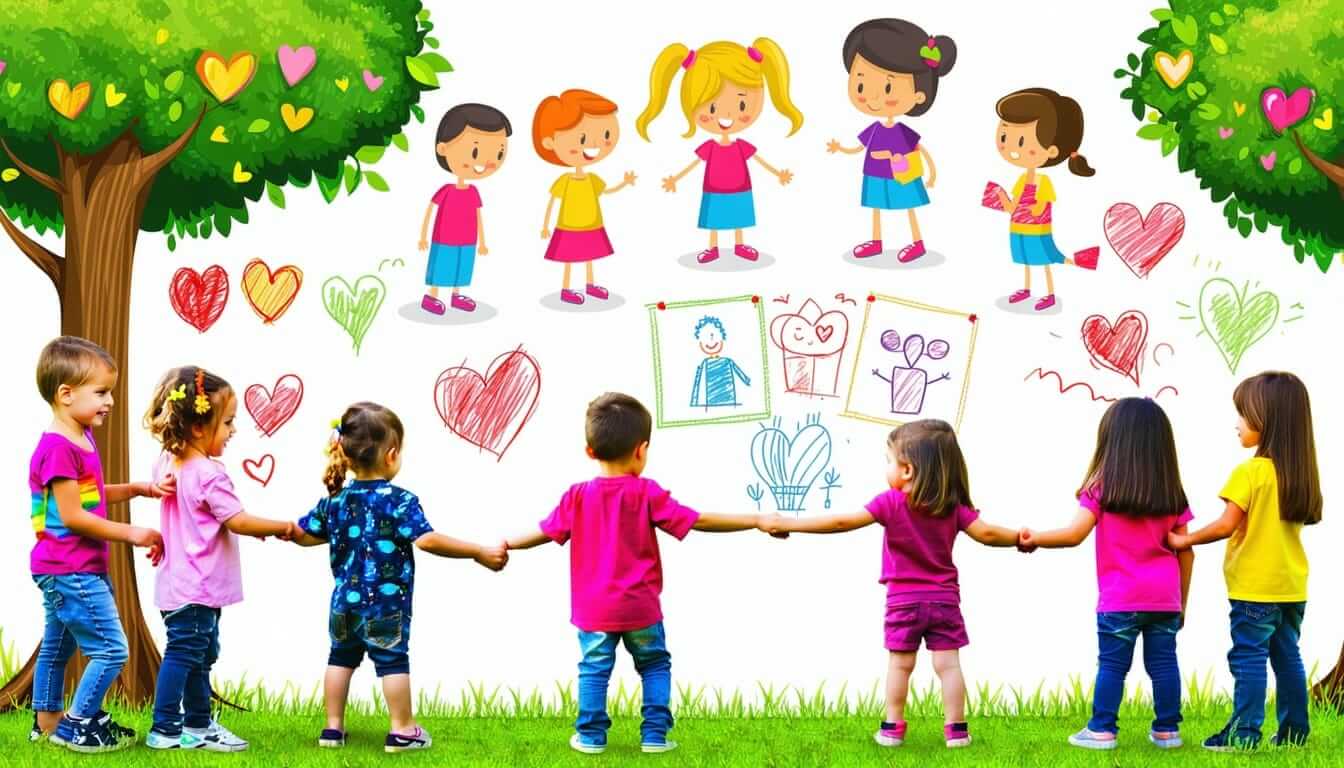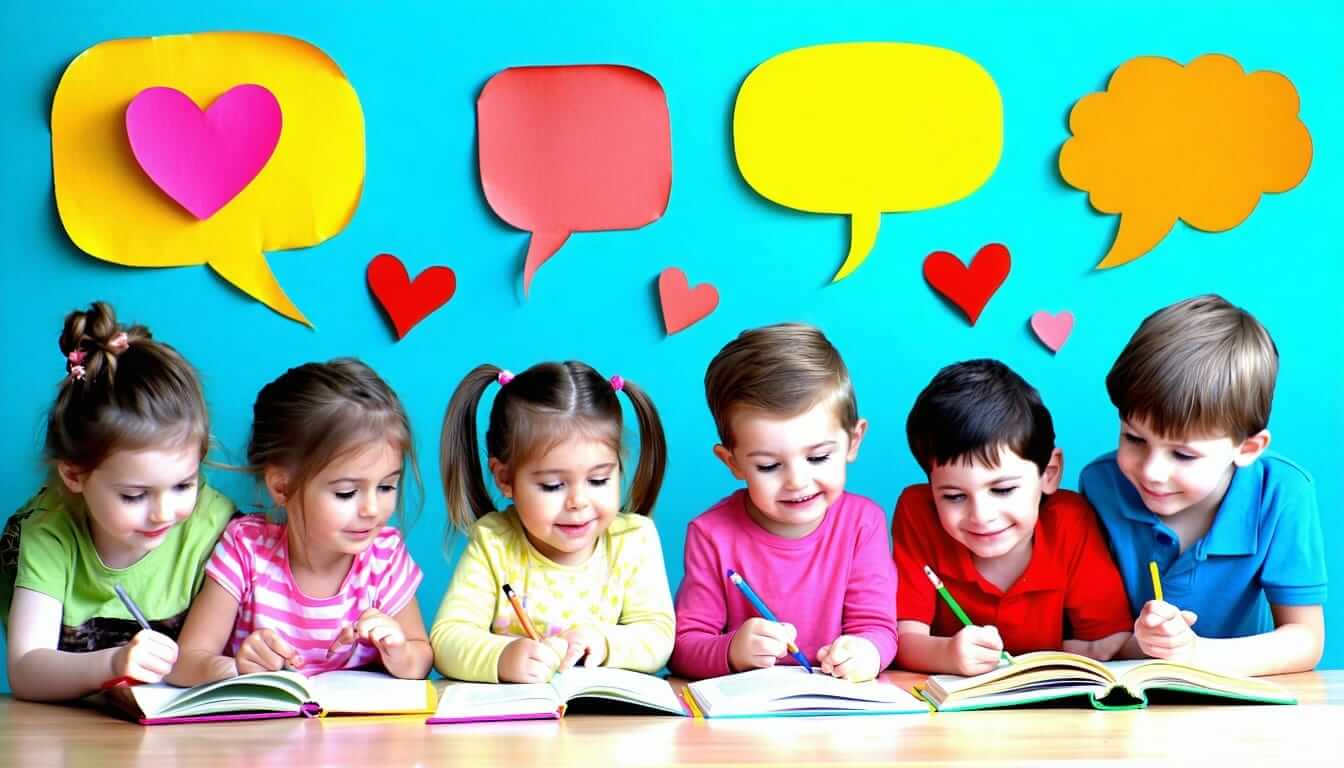When you introduce empathy activities for children at home, you’re helping your little one see the world through someone else’s eyes. That foundation leads to respect, stronger friendships, and the communication skills young leaders need. Good news, you don’t need hours each day to make a difference. This approach lays the groundwork for respect and leadership.
Empathy Benefits for Children
Empathy helps kids understand others’ feelings and respond kindly. When your child practices empathy, you’ll often see:
- Fewer conflicts on the playground and at home
- Better teamwork in group projects
- More confidence in speaking up and listening well
While every child learns at their own pace, consistent practice of empathy activities builds social awareness and respect—key traits of future leaders.
Practice Perspective-Taking Activities
Getting your child to step into someone else’s shoes is a powerful empathy exercise. Try these simple ideas:
Role-Playing Scenarios
- Pick everyday situations (sharing toys, disagreeing with a friend)
- Assign roles and act out each scene
- Pause and ask, “How might you feel if you were them?”
You’ll notice your child starts to name emotions more easily.
Story-Based Discussions
After reading a picture book, invite your child to explore characters’ feelings:
- “Why do you think she looked sad?”
- “What could he do to help?”
Good news, you can use any story you already own.
Encourage Emotion Sharing
Helping kids name and share their feelings makes empathy real.
Feelings Check-In
At dinner or bedtime, ask: “What was the best part of your day? What was hard?”
This two-minute habit gives you insight and shows your child you value their emotions.
Gratitude Journals
Supply a notebook and encourage one entry per week:
- Something that made them happy
- One way they helped someone else
You’ll be surprised how gratitude and empathy grow side by side.
Engage in Helping Projects
Action cements empathy. Look for chances to serve together.
Home Chores With Purpose
Instead of “clean your room,” try “set the table for Grandma—she’ll be so happy.”
Framing chores as helping someone in need connects tasks to feelings.
Community Kindness Actions
Plan a family litter pick at the park or donate gently used books to a local shelter.
Turning service into a project shows kids how their choices affect others.
Use Empathy Learning Resources
Interactive tools can make empathy practice hands-on and fun.
Interactive Games And Worksheets
From matching emotion faces to scenario cards, these exercises guide reflection:
- Check out empathy games for kids for playful role play
- Download printable empathy worksheets for children to spark conversations
Children’s Books About Empathy
Stories offer rich examples of caring and respect. Look for titles that feature diverse characters and real-life challenges. For more ideas, explore our list of children’s books about empathy.
Strengthen Respect With Martial Arts
Martial arts teach discipline, focus, and courtesy—cornerstones of respect. Mastery Martial Arts Troy blends character education into each class so your child learns self-control and empathy at the same time. Good news, you can try a free 2-week trial at www.KidsMartialArtsTroy.com and see how respect and confidence grow together. For extra tips on guiding respectful behavior, visit teaching respect to children.
Recap And Next Steps
- Pick one perspective-taking activity to try today.
- Add a weekly feelings check-in or gratitude journal entry.
- Plan a small helping project or community service.
- Use games, worksheets, and books to reinforce lessons.
- Consider martial arts at Mastery Martial Arts Troy for structured respect training.
You’re on your way to nurturing a respectful, empathetic leader. For more age-tailored ideas, check out our guide on empathy activities for elementary students.





0 Comments